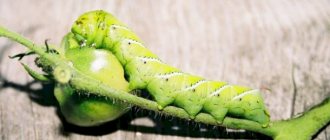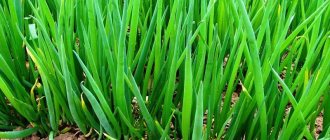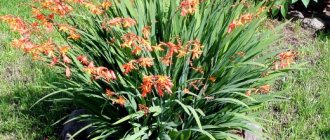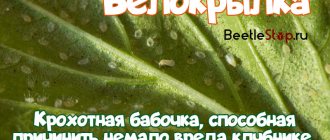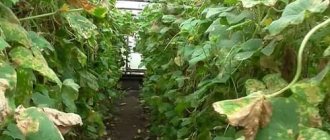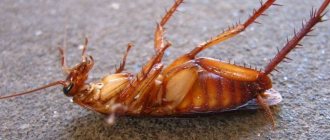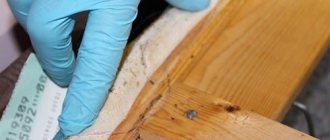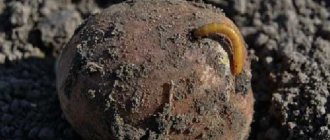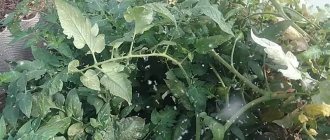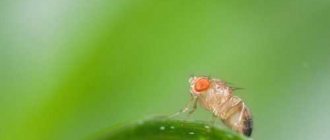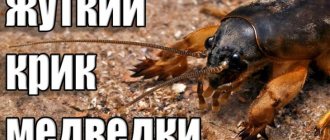What crops does the insect attack?
The pest can be found on the following shrubs and trees:
- berries – strawberries, wild strawberries, raspberries;
- cotton, melons - watermelons, pumpkins, melons, zucchini;
- vegetables - cabbage, onions, carrots, beets, tomatoes;
- citrus fruits - lemons, oranges, tangerines;
- flowers, ornamental shrubs - irises, gladioli, tulips, roses, hibiscus;
- fruit trees - plum, apple, pear, cherry.
Important! The insect can eat all plants, regardless of the crop.
Types of agricultural moths
Many people think that worms bother them in their gardens and gardens. But in fact, these are caterpillars - the larvae of butterflies or moths. They are the ones who devour the fruits and foliage of plants, destroy them and deprive people of their harvest.
There are many types of moths. Part of this suborder are agricultural pests. For example, you can distinguish potato, cabbage, apple, and rye moths. The damage caused by the larvae of these pests is significant, since they are capable of completely destroying the entire crop in a vegetable garden or garden.
But in houses these insects are helpless, since there is nowhere for them to even lay eggs in the home. Unless, of course, the owner happens to have forks of cabbage or a freshly picked potato bush readily available in his room.
Why is it dangerous and how to identify whitefly?
Adults and larvae can completely destroy the plant. In addition to eating the bush, they can infect it with some diseases that they carry on their paws. The list of diseases includes the following:
- chlorosis;
- leaf deformation;
- phytopathogenic viruses.
From these diseases, many crops can not only grow poorly, but also die.
Insects feed on sap from plants, and can live both on bushes growing in a greenhouse and on those that develop in the ground. In addition, pests multiply quickly; in 3 weeks the larva already becomes a full-fledged individual. The period of development of an insect caterpillar is destructive for all plants, since the larva eats a lot.
Most often, whiteflies can be seen on eggplants, beans, cabbage and other vegetable plants.
After the life of the parasites, the leaves on the plants begin to turn black, and fungi form on them. In most cases, the plant cannot be saved from fungi. The bush stops its development and dies. The process is complicated by the fact that insects can feed on any crop, including indoor plants.
The whitefly in its shape resembles a small midge, but is distinguished by its large dimensions and pronounced wings. You can identify it in the following ways.
- Shaking the bush. A large cloud of insects should fly off it.
- According to the larvae, which are usually located on the inside of the leaf and have the shape of white capsules.
- It can also be identified by the condition of the plant, which after a certain time becomes covered with white liquid or black spots.
If you do not find out about its appearance in time, the culture will die. In addition, other plants will be at risk of damage, as the insect will move around in search of food.
Prevention measures
Experienced gardeners and gardeners know that it is much easier to prevent a pest from appearing on your site than to fight it for a long time and persistently. In this regard, preventive measures play an important role in the fight against whiteflies:
- Systematically inspect the crops, especially carefully inspect the underside of the leaf blades, since the pest likes to hide there and lay eggs. Remember that crops growing in conditions of high humidity and elevated temperatures require special attention.
- Feed the plants in a timely manner and provide them with good care, since pests primarily attack weakened specimens.
Forget about whiteflies in your area! An easy solution to your whitefly problem.
How and when to treat the area?
The area must be treated at a certain time. This way the effect will be higher, and the whitefly will disappear from the area faster.
On vegetable crops
If an insect appears on vegetable crops, you first need to use folk recipes, and only then use chemicals. This will protect the flowers and stems of the bushes from harmful substances entering the plant. It is best to spray vegetables, but you can also water the soil with the solution.
You need to use control methods on a quiet day that does not predict precipitation or strong winds. Also, do not spray plants with chemicals on a hot day, as burns may occur on the leaves. Treatment should be carried out at the moment the whiteflies appear, without waiting for their reproduction.
On flowers
Flowers should not be treated with chemicals that are absorbed into the plant, as the flower may wither. It is best to process flower stalks when flowers have not yet begun to form on them. At the same time, whiteflies should not be allowed to reproduce.
Flowers also need to be sprayed with solutions or watered the soil around them.
On bushes and trees
Trees and bushes, due to their large size, are recommended to be pollinated with chemicals. They will destroy harmful insects that have hidden under the bark or in other hard-to-reach places. You need to spray the plant before flowers or fruits appear on it.
Effective means to destroy whitefly on fruit trees
Fighting methods
Parasitic insect encarsia
To combat the pest, you can use a mechanical method, that is, collect whiteflies by hand, but this must be done early in the morning, when they are still inactive. Leaves that are heavily infested with insect larvae and eggs should be removed.
There is also a biological control method that can significantly reduce the number of whiteflies. To do this, they use a parasite such as encarsia, which is purchased in specialized stores. This tiny wasp-like insect lays its eggs in the body of a whitefly. The emerging larvae gnaw through the body of the pests and get out.
Hanging sticky traps helps in pest control. For indoor flowers you will need one piece per window sill, and for greenhouse flowers - one trap per 10 square meters. You can use sticky fly tape or make your own fly traps. To do this, take a piece of plywood or plastic and smear it with Vaseline and a mixture of honey and castor oil. From time to time, the traps are cleaned of adhering insects and re-lubricated.
Whiteflies do not tolerate watering, as this will wash away their waxy coating. The procedure is carried out five times every four days, after each moistening the soil is loosened and sprinkled with wood ash.
You can reduce the whitefly population using a fumigator (for flies or mosquitoes). The electrical device is turned on in a closed room with affected plants; during its operation, chemical vapors are released that destroy pests.
Folk remedies
At the initial stages of damage, plants are treated with a soap solution. Crushed laundry soap (you can use tar soap) is dissolved in water 1:6, whipped into foam and wiped with the solution on damaged leaves and treated the top layer of soil. It is important to adhere to the correct proportions to avoid burns. If the plants are not seriously affected by pests, then you can spray with the following herbal infusions:
Chemical methods
If plants or seedlings are massively affected by whitefly, then chemical agents should be used. They penetrate the tissues and poison the sap on which harmful insects feed. The most common drugs are presented in the table:
| "Aktara" | An effective remedy with a long period of action (about 5 weeks). The drug is watered at the root of the infected plant. |
| "Confidor" | An effective insecticide that is sprayed on all parts of the affected plant; the pests die a few hours after the first treatment |
| "Aktellik" | A toxic drug with an unpleasant odor, helps get rid of various pests, including whiteflies |
| "Akarin" | The insectoacaricide has an intestinal effect; the drug is sprayed directly onto areas where pests accumulate |
| "Fitoverm" | An effective insectoacaricide has a specific odor and kills the pest in two sprays |
| "Spark" | A low-toxic drug, available in the form of ampoules, tablets or sticks. It contains substances that promote the rapid restoration of damaged parts of the plant. Used for irrigation, kills pests after the first treatment |
| "Fufanon" | A highly toxic product can destroy pests in one treatment |
| "Rovikurt" | The drug is intended to protect vegetable crops such as tomatoes and cucumbers from whiteflies, and is also used to protect indoor flowers and garden trees. Treatment with a chemical agent is carried out no later than a month before harvesting the fruits. |
| "Mospilan" | A broad-spectrum insecticide, low-toxic, odorless and non-addictive. The drug kills adult pests, their larvae and eggs and protects plants for three weeks after treatment |
| "Vermitek" | An effective insecticide for protecting flower, fruit and vegetable crops from harmful insects. The drug is toxic; it should not be sprayed near nests, ponds and during flowering plants, as it has a detrimental effect on birds, pond inhabitants and pollinating insects |
All of the above drugs are used according to the instructions.
Before preparing the solution, you must wear rubber gloves and a respirator, since chemicals coming into contact with the skin and mucous membranes can cause burns. It is advisable to carry out the treatment in the morning on cloudy days, when the pest is inactive. After the procedure, it is necessary to loosen the soil around the plant. Whiteflies quickly develop immunity to the chemicals used, so it is recommended to change them from time to time.
Vegetables can be eaten only two months after treatment with chemicals, when harmful substances are released from the fruit.
Source
Preventive actions
To prevent harmful insects from appearing on plants again, the following rules must be followed:
- ventilate and change the temperature in the room;
- wipe the leaves of the bushes once a week;
- loosen the top layer of soil;
- do not allow moisture to stagnate in flower pots;
- do not plant bushes too close to each other;
- in the fall, dig up the ground and use soil fumigation;
- the greenhouse can be frozen in winter;
- treat the soil with ash and other disinfectants;
- Cover infected plants with film to prevent midges from spreading further.
Folk remedies
Washing leaves with water
The transformation of larvae into adult insects occurs in 7 days. Until this moment, they, being on the underside of the leaf, actively suck the juices out of it. In order to reduce the number of pests, it is necessary to destroy as many larvae as possible. Therefore, once a week it is necessary to thoroughly wipe each leaf with a moistened soft sponge. It is recommended to apply a soapy solution for this. Try to remove any existing larvae from the leaves. After some time, the pests will be completely destroyed.
However, this method is applicable only in the case of not a very large amount of vegetation. So, for example, in large plantings, greenhouses, greenhouses, this method is ineffective and labor-intensive.
Decrease in air temperature to 10 degrees
If the temperature is lowered to 10 degrees or less, then the adults die, but a certain number of larvae and eggs remain alive and simply hibernate. After the temperature increases by more than 15 degrees, they come to life and continue their normal life activities.
Other folk remedies are various solutions that should either be watered or sprayed on the affected plant.
Tinctures and solutions against whiteflies
Soap solution
To prepare the solution, laundry or tar soap is suitable. It should be crushed using a grater. Dissolve soap in water in a ratio of 1:6. The resulting liquid must be thoroughly beaten to form a stable foam, and then, using a sponge, apply it to the surface of the plant. The green parts of the plant can simply be sprayed with the resulting solution; there is no need to whisk it. The surface layer of soil also needs to be lightly sprayed.
In some cases, all insects will be destroyed after the first treatment. However, in most cases a new treatment will be required after 7 days.
Garlic infusion
For a liter of clean water you will need 2 medium-sized crushed garlic cloves (6 grams). Mix everything, cover and put the container in a dark place. After 24 hours, the infusion is filtered and used for spraying. As a rule, 2 or 3 treatments are enough, with a break of 1 week between them.
Infusion of yarrow herb
For a liter of water you will need about 90 grams of yarrow leaves (not dried). Mix and leave for 48 hours. Then the infusion needs to be filtered and the plant can be treated with it using a sprayer. 2 or 3 treatments are enough, the break is 1 week.
Tobacco infusion
To prepare the infusion, you need to purchase cigarettes (for example, “Prima”). Gut the tobacco from the cigarettes and pour a liter of not very hot water into it. Place the mixture in a dark place, and after 5 days the infusion will be ready for use. It needs to be filtered and used for spraying. Treatment is carried out once every three days until the whiteflies completely disappear.
Dandelion infusion
To prepare, you will need 40 grams of dandelion leaves and the same amount of roots of this plant. They are finely chopped and then mixed with a liter of water. After 3 or 4 days, the infusion will be ready. After filtering, it is used to spray plants. The treatment is repeated a couple of times, with an interval between them of a week.
HOW TO FIGHT WHITEFLY, WITHOUT CHEMICALS!!!!!!! IN A GREENHOUSE, WITH AVAILABLE MEANS, A SIMPLE METHOD
Clothes moth
The body length of an adult insect of this species ranges from 5 to 8 ml, and the wingspan reaches 1.6 cm. The wings of the moth are narrow and devoid of spots. But on their edges there is a long fringe of hairs.
The body of the moth is beige in color with golden hairs. Reddish-golden hairs grow on the head.
Clothes moth caterpillars are similar in appearance to coat moth larvae. They live in natural tissues, eating those places of matter that are not visible from the outside, because they most often do not even taste the top layer. Having developed, the larva stops feeding and weaves a spindle-shaped hard silk cocoon. The outside of this sarcophagus is covered with feces and food waste.
Female clothes moths are poor fliers. Therefore, they move by jumping, trying to hide in the folds of clothing. If you notice a flying clothes moth in your home, you can be sure that it is a male.
Chemical insecticides
Many are afraid to treat apple trees with chemicals, and this is completely in vain. These products have passed biological and chemical tests and have proven their effectiveness. They will save the tree from insect infestation without harming the fruit.
Insecticides
The main thing is to start fighting on time. The most suitable time for treating apple trees is the period before young leaves bloom on the tree. Repeated treatment should be carried out after a month.
Several effective drugs:
- Karate is a very popular drug among summer residents. It is very economical: 10 liters of solution is enough to treat one hundred square meters of land.
Insecticide Karate Zeon - The drug Nitrofen should be used before the first leaves form on the tree, otherwise it can damage the delicate greenery. Treatment with the product is carried out in dry, windless weather; 200 g of the drug is required for 10 liters of water.
Nitrafen, 350 ml - Intavir has won many positive reviews. It copes well with aphids on apple trees, and is also effective against fifty more common pests.
- A flowering tree can be treated with Kinmiks. It begins to act within an hour after irrigation and continues to protect the apple tree for another 2-3 weeks. It is recommended to do secondary treatment of wood using another preparation to avoid the pest becoming addicted.
Reasons for appearance
Butterflies by themselves are unlikely to enter your home. They can be introduced along with the soil, a new plant, or on clothing.
Very rarely, whiteflies fly in on their own through open windows or vents.
In order for a butterfly to begin to reproduce, it requires certain conditions.
In cool rooms with a constant supply of fresh air, whiteflies most likely simply will not survive.
IMPORTANT! The ideal factors for development are heat, high humidity and stale air without the slightest movement. If the plants are arranged very closely together, tightly touching each other, it means that the whiteflies have found themselves in the most suitable conditions for life.
- What indoor plants can be affected by whiteflies?
Pests prefer succulent indoor flowers. Among the favorites are fuchsia , myrtle , pelargonium (geranium) , ficus , gloxinia , eucalyptus , calla lilies , impatiens , ferns . In general, any plants with fairly soft leaf blades.
Butterflies do not attack cacti and poisonous flowers.
Diet
Before you find out how to get rid of whiteflies in the garden, it should be said that begonia, fuchsia, passionflower, balsam, lantana, and pelargonium are considered the insect’s favorite plants. If there are no favorite crops, then the pest attacks most known indoor flowers. In greenhouse conditions, whiteflies are often found on cucumbers. The insect also lives on other crops. Whitefly is also found on tomatoes. In a greenhouse, insects can cause great damage to plantings. In open areas it often damages many herbaceous plants. Shaded places are considered favorites. Whitefly is often found on strawberries.
Midges in the country: the most effective means to combat harmful insects
When planting seedlings on his plot, every summer resident dreams of getting a rich harvest. But unfortunately, insect pests often interfere with this: they gnaw the roots, spoil the fruits and suck out the nutritious juices from the plants. Such parasites include the midge, and despite its small size, it can quite seriously damage both seedlings and those crops that have already gained growth. So, let's figure out why midges are dangerous in the country, and what ways you can get rid of them.
Alternative measures
The most difficult thing, as practice shows, is to eliminate whiteflies in a greenhouse. It is not advisable to use chemicals here. This is due to the fact that aggressive substances accumulate in the soil, from where it is almost impossible to remove them. In this case, it is better to use alternative methods. Mechanical removal is considered the most harmless. Insects can be knocked off the ground part of the plant with a stream of water. After this, it is necessary to loosen the soil around the stem.
Spraying plants with garlic tincture is also effective. The whitefly will be scared away by the pungent smell, and it will fly to look for a more attractive place. To prepare the infusion, you need to take crushed cloves (about 150-170 g) and add a liter of water. Infuse for five days in a tightly closed container. For treatment, 6 grams diluted in a liter of water will be enough. A thick solution with laundry soap is considered an excellent solution. They can be used to process strawberries. This product does not pose a danger to humans, and the method of application does not depend on the vegetative stage of the plant. To protect tomatoes, a weak solution of lime or copper sulfate is suitable. Treating the leaves will reliably protect them from insect invasion.
Winged pests in human homes
Usually, when we hear the word “moth,” everyone thinks of a small, inconspicuous butterfly that climbs into places where clothes are stored and leaves its eggs there. And after some time, the housewife discovers that the pile of the coat has bald spots, and the woolen blouse is completely full of small holes. And the clothes moth larvae did their best.
In fact, many moths in an apartment are a real disaster. In addition to the already mentioned clothes moths, fur moths, furniture moths, grain moths, and wax moths annoy people in their homes. Moreover, sometimes it is quite difficult to determine by appearance whether this pest belongs to one species or another and to guess its taste preferences. Although there are differences between them.
Fur moth
This Lepidoptera is colored clay-yellow with a sheen. The wings below are light gray in color, with a slightly yellowish tint. In their front part, near the middle, there are small dark dots, and a little further there is a larger spot. The wingspan is approximately fifteen to sixteen millimeters. This is quite a beautiful moth butterfly. The photo shows how peculiar the insect looks.
Their caterpillars are worm-like, whitish in color and almost naked. They have eight short abdominal legs, transparent skin through which the stomach is visible.
The larva of the fur moth feeds mainly on natural fur, which is why it got its name. Crawling along the skin, the caterpillar gnaws all the hairs it comes across on its way. Moreover, this process is not always caused by hunger. So, having hung a brand new fluffy fur coat in the closet, you can after a while take out a completely bald little thing, provided that the fur moth has been in the wardrobe and managed to breed there.
We suggest you read: We poison cockroaches in the apartment - with what and how?
Signs of infection
The easiest way to recognize a whitefly is to touch the flower. Disturbed insects will rise into the air in a flock. The attacked plant begins to hurt. This is manifested in the following signs.
- Yellowing and deformation of leaves. The larvae feed on plant sap. The leaves first become covered with spots, then turn yellow and become deformed.
- Falling buds. In a sick flower, the buds dry out and fall off without blooming.
- Honeydew. The leaves are covered with a sticky sugary coating.
- Secondary infections. A sooty fungus settles at the site of the plaque. The affected areas become covered with a black coating and the leaves fall off.
Whiteflies are carriers of 19 dangerous viral, fungal and infectious diseases. After an insect attack, signs of necrosis, mosaic, and curling are often found.
Traps
Many gardeners are interested in whether it is possible to eliminate an insect such as whitefly without chemicals. Folk methods of control, it must be said, are very common among experienced gardeners. Here's what summer residents advise: to catch adult individuals, you can use glue traps. They are pieces of hardboard or plywood, painted white or yellow. After drying, the surfaces are lubricated with castor oil, honey with rosin or Vaseline. Pests are attracted to bright colors (preferably yellow), they sit on the bait and simply stick. After a lot of insects have accumulated on the plywood, it is wiped and impregnated again. Glue traps designed for flies are also effective.
